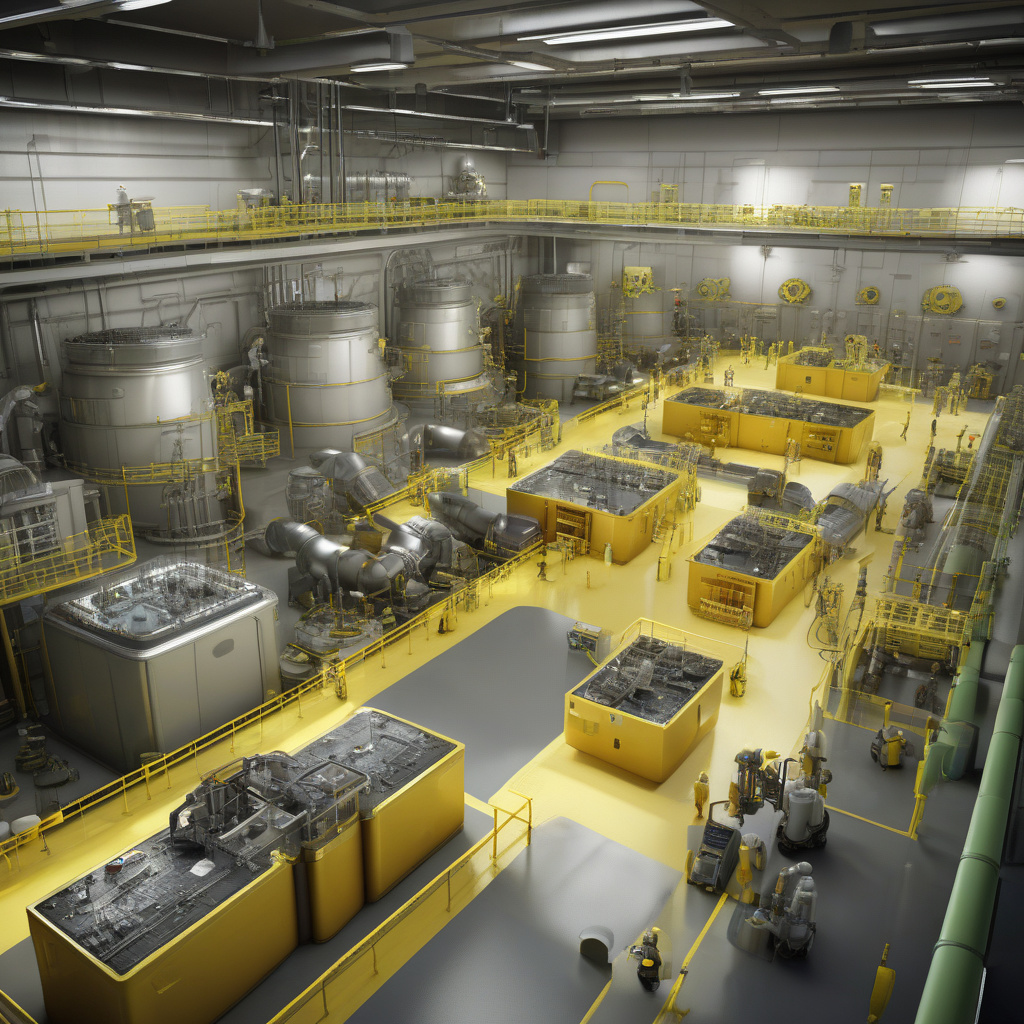Turning US Nuclear Waste into Rare Hydrogen Fuel for Reactors
Scientists in the United States are developing a method to recycle nuclear waste to make rare hydrogen fuel for reactors. This innovative approach not only addresses the long-standing issue of nuclear waste management but also offers a sustainable solution for producing clean energy.
Nuclear power has long been a controversial topic due to concerns about the disposal of radioactive waste. The process of recycling nuclear waste to create hydrogen fuel presents a game-changing opportunity to mitigate these concerns. By extracting valuable materials from spent nuclear fuel, scientists can not only reduce the volume of waste but also harness its energy potential in a safe and efficient manner.
The concept of using recycled nuclear waste as fuel for reactors is not entirely new. Countries like France and Russia have been reprocessing nuclear waste for decades to extract usable materials. However, the United States has been slow to adopt this approach due to regulatory and economic challenges.
One of the key benefits of recycling nuclear waste to produce hydrogen fuel is the potential to generate clean energy. Hydrogen is considered a clean fuel source because its combustion does not produce greenhouse gas emissions. By incorporating hydrogen fuel derived from recycled nuclear waste into reactor systems, the US could significantly reduce its carbon footprint and move towards a more sustainable energy future.
Moreover, the production of rare hydrogen fuel from nuclear waste could enhance the efficiency of nuclear reactors. By optimizing the fuel composition, scientists can potentially increase the energy output of reactors while minimizing waste generation. This dual benefit not only improves the overall performance of nuclear power plants but also contributes to cost savings and operational sustainability.
In addition to the environmental and energy-related advantages, recycling nuclear waste for hydrogen fuel production could also have geopolitical implications. As the global demand for clean energy continues to rise, countries that can effectively manage their nuclear waste and produce sustainable fuel sources will have a strategic advantage in the energy sector. By investing in innovative technologies for nuclear waste recycling, the US can position itself as a leader in clean energy production and strengthen its energy security.
While the concept of recycling nuclear waste to create rare hydrogen fuel for reactors holds tremendous promise, there are challenges that need to be addressed. Regulatory frameworks, technological advancements, and public acceptance are critical factors that will influence the successful implementation of this innovative approach. However, with continued research and collaboration between the government, industry, and academia, the US has the potential to revolutionize its nuclear energy sector and pave the way for a more sustainable future.
In conclusion, the development of a method to recycle US nuclear waste into rare hydrogen fuel for reactors represents a significant step towards addressing the dual challenges of nuclear waste management and clean energy production. By harnessing the untapped potential of recycled nuclear waste, the US can unlock new opportunities for sustainable energy generation and establish itself as a global leader in the transition to a low-carbon economy.
nuclear waste, recycling, hydrogen fuel, reactors, clean energy












